“Women Wage Peace” in Israel/Palestine portends a social revolution
By Stephen Longfellow Fiske
Today’s revelations of the dark shadow of misogyny in the United States, where headlines of women being sexually harassed, raped and assaulted in the workplace have led to the rise of the social media hashtag “#MeToo”, extends well beyond our shores. Women around the world have been connecting their stories of struggle and survival in the face of sexual abuse and subjugation with honest and often heartbreaking intensity. This has catalyzed an awakening among men and all of us, to the beginning of a massive social paradigm shift.
Women are taking a stand, fighting for their rights and those of others, striving for peace as opposed to violence, for dignity as opposed to degradation, for respect as opposed to disregard, and for honoring boundaries as opposed to rape. This is being echoed from Los Angeles to New York, Moscow to Jerusalem, Paris to Rijad, Liberia to Darfur, in large cities and villages alike. It is women, stepping forward, who are expressing a better insight and instinctual understanding of what is needed to put today’s chaotic world back on track – to undo the ruins that men, driven by predatory ego and patriarchal dominance, have created. The sensibility, wisdom and inner strength of women offers the light of hope in a world seemingly heading on the dark path to self-destruction. And it is women, who are intent upon creating change with dignity, respect and grace — not weapons of mass destruction and excessive violence.
During my most recent trip to the Holy Land, I witnessed and participated first-hand in the heart of the worldwide women’s revolution, that is fast gathering momentum and becoming a powerful force to be reckoned with.

In the midst of the exposed nerve of the Israeli/Palestinian conflict, where generations of intractable division, walls and war have rendered the idea of peace unimaginable to many, a movement called ‘Women Wage Peace’ (WWP) has been gathering strength in numbers and widespread attention. At the birthplace of the Abrahamic faiths, where ancient trails connect past to present, despite decades of high level efforts to achieve diplomatic solutions, the male dominated political and religious leadership have failed spectacularly.
This year, over the span of the high holidays of Rosh Hashanah and Yom Kippur (September 21st – October 10th), WWP organized a two-week series of rallies, marches, meetings and concerts in various locations throughout Israel/Palestine. This massive logistic and organizational accomplishment, called the “Journey to Peace,” was impressive for its scope, spirit, teamwork, and excellence of execution, as well as its message.
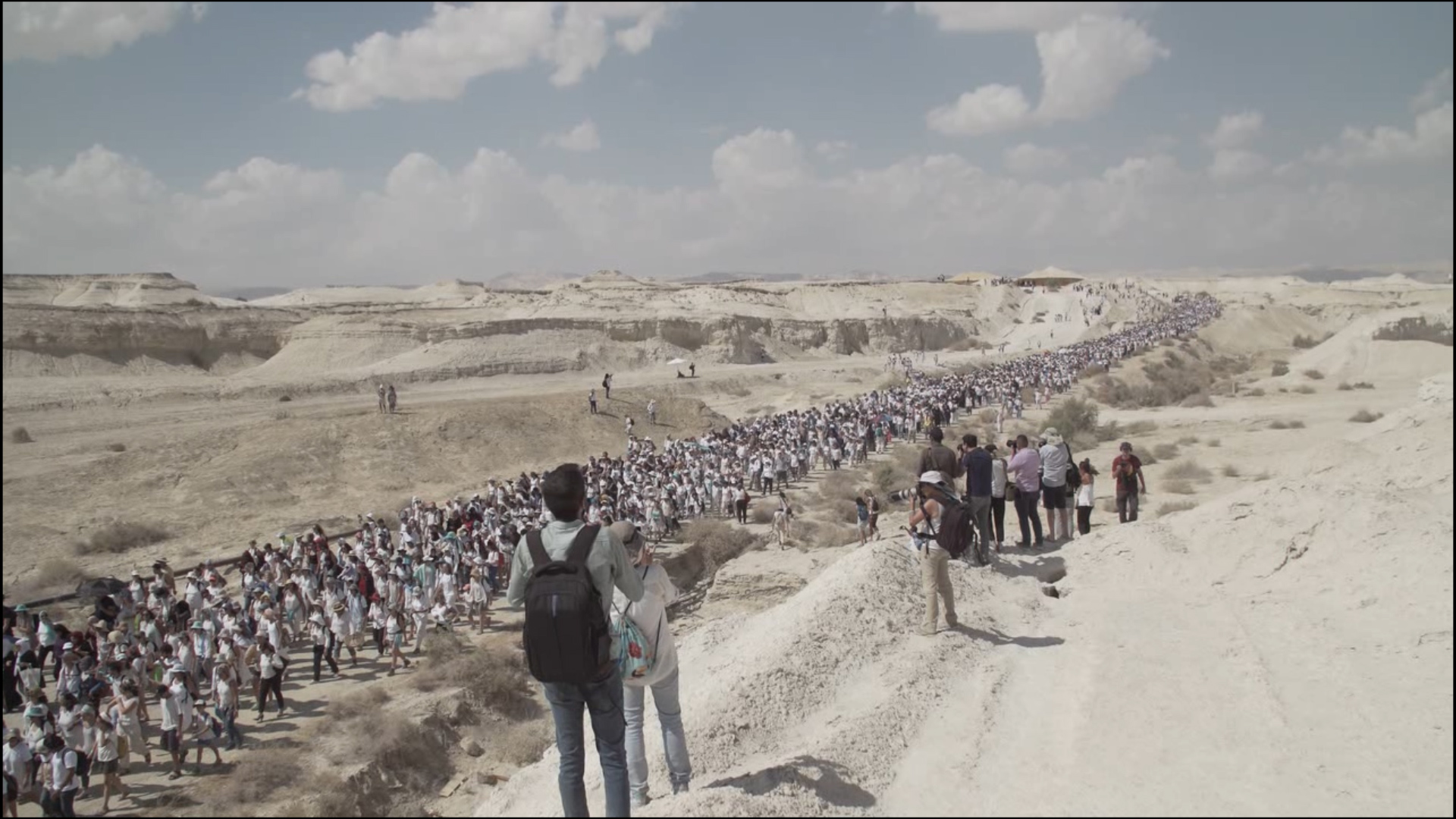
In the three years since its founding, WWP has gathered over 40,000 enrolled supporters and has firmly established itself in the political and social landscape of the Holy Land. WWP is an Israeli movement supported by Palestinian women who together are saying “enough is enough” of the hatred, enmity, violence and fear.
I traveled there to film and do interviews. Participating in these marches and rallies rekindled the sentiments and feelings I experienced as a young marcher in the Civil Rights Movement, where I first learned that people power is what makes the difference in issues of justice and peace.
In the Civil Rights Movement, we who were marching, singing, and protesting, were dedicated to ending segregation and the “Jim Crow laws” which allowed a system of American apartheid to exist. We knew then we were on the right side of justice and ultimately the movement led to the Civil Rights Act of 1964. The energy of the Women Wage Peace movement in marches, song, speech and spirit, also feels to me to be on the right side of justice, and I am sure in time will no doubt impact policy makers to put peace back on the top of the political agenda where It has slipped into dormancy.
The WWP marches were on a large scale — in Jaffa, there were over 3,000 marching, and at the Dead Sea there were more than ten thousand including 3,000 Palestinian women (men too). And, in Jerusalem, the concluding rally on October 8th had over fifteen thousand.
The spirit of all the women was one that was alive, excited, dedicated, and committed to the cause. The energy was effusively high, amplifying the voice of the women to be heard loud and clear. The exchange of sincere respect, camaraderie, and love between the Palestinian and Israeli women was inspiring and heartwarming. The vibrancy was contagious, and the atmosphere was electric with hope and absolute commitment to reenergize the peace process. The women were united in their partnership for their cause, and anyone who experienced the marches and rallies could not help but come away feeling that this movement has a real momentum, and a sense that real progress can be made.
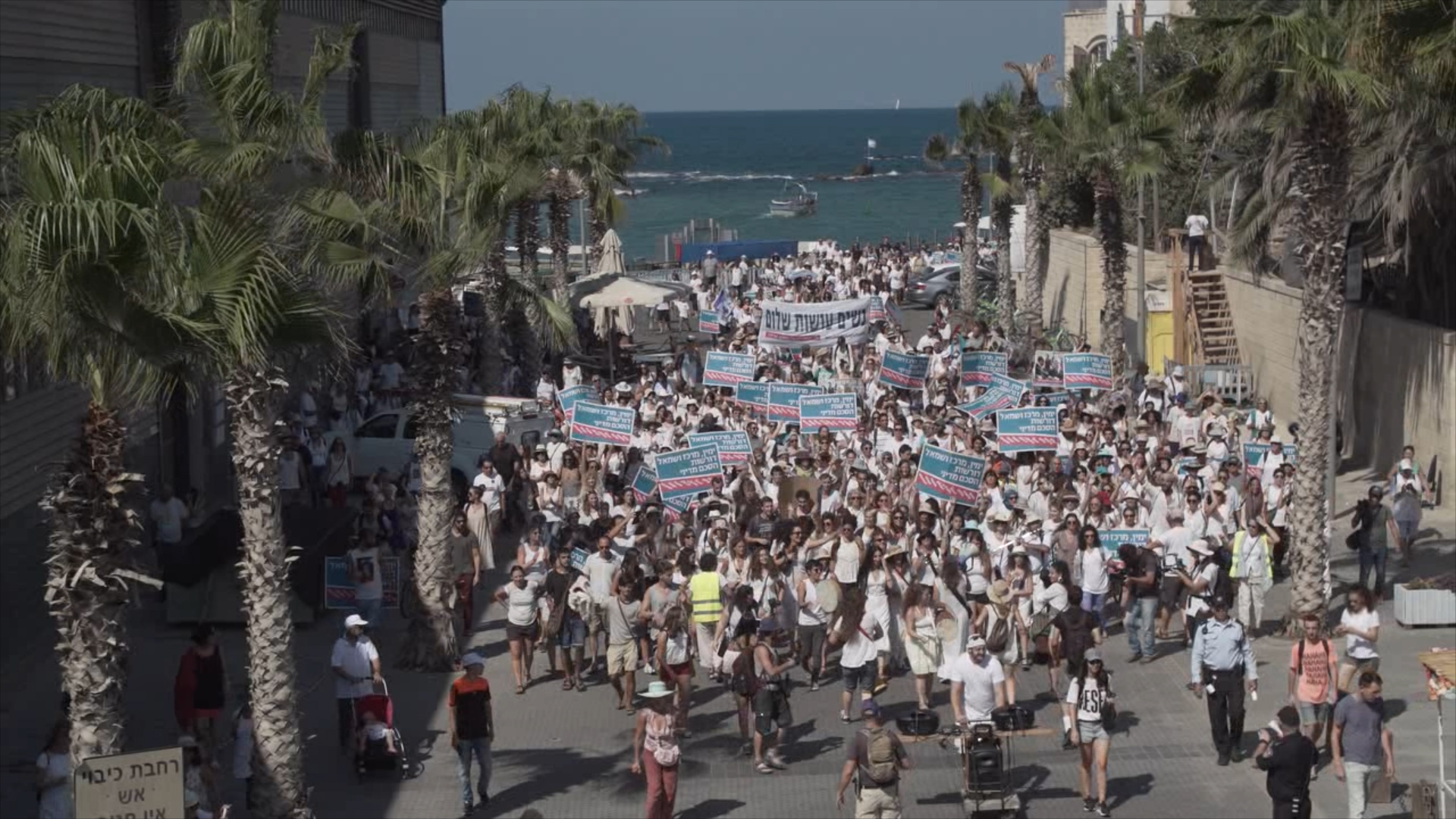
Unlike the typical protest movements of activist opposition, WWP has developed their own distinct mission and working premise. They claim to be neither to the right nor the left. They are not anti-this nor anti-that; they are pro-solution. The women of WWP clearly state that they are bringing an end to the “blame and shame game,” that the conflict is not about the forces of evil vs. the good, that both sides have been guilty of horrifying transgressions, and that both sides have legitimate needs that have to be met. Undaunted, despite the attitudes of dismissal and cynicism towards a movement of women, the motivating philosophy of WWP takes a high moral ground, an overview of spiritual proportions emanating from the heart and the womb of the Holy Land. They proclaim they are ”changing the consciousness, changing the language, changing the narrative, and changing the reality.”
While WWP does not espouse a specific political position, they come straight from the heart as nurturers and caretakers of life. They want their spirit and their actions to shake up and wake up the policy makers, and they pledge to not stop until a political agreement is made. They are attempting to break through centuries of stereotypical mind-sets and the demonizing of the other, to forge new pathways through the walls of fear and hate and the hardened boundaries of blindness and denial. They are determined and committed to build new partnerships and pave new inroads to the peacebuilding process, currently stagnant, while the atmosphere of animosity remains hovering like a pressure cooker, simmering with the undercurrent of volatility that could erupt violently again at any trigger point.
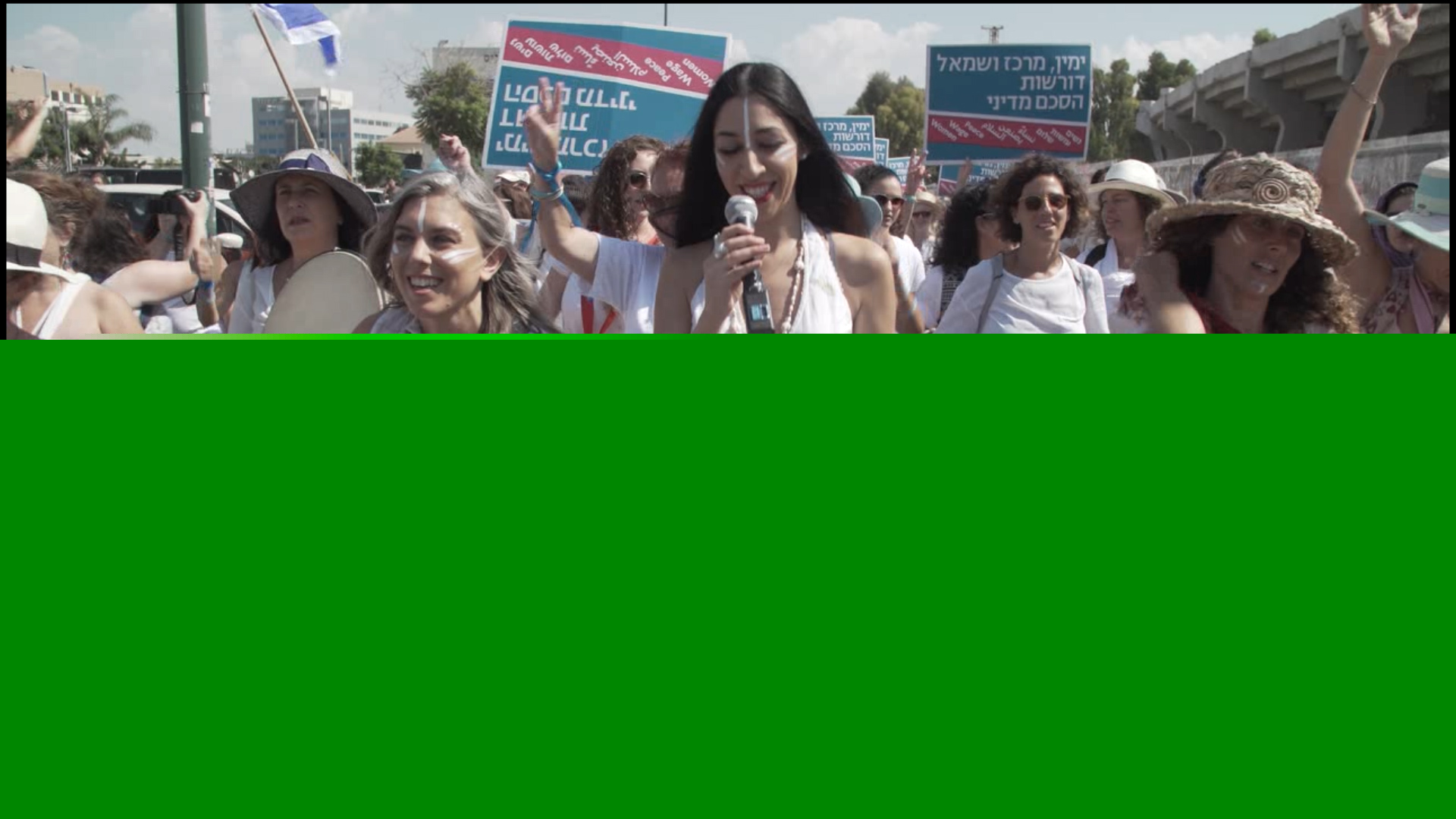
A leading cultural voice emerging from the WWP movement is that of Israeli/Canadian singer songwriter Yael Deckelbaum, whose song and video “Prayer of the Mothers,” inspired by and written specifically for the movement, has received millions of views on YouTube and Facebook. Deckelbaum, together with Palestinian singer Miriam Tukan, chanting “women of the world unite!”, have led the marches with their emotive music, drums, chants and dance, and have performed tirelessly on the stages of the rallies. Deckelbaum states, “We’re making history, this is a new era, we are going through a revolutionary transformation!”
Although there have been a lot of peace movements in Israel over the years, there has never been anything this large and dynamic led, thought, and felt by women. WWP team leader Rivi Diamond states: “We are the fastest growing movement in Israel right now and the most active physically out there on an ongoing basis. We have branches all over the country. It is groundbreaking. We use a language that is very inclusive. We unify around the notion that only a political agreement will finally bring peace to this region.”

Huda Aboarquob, a Palestinian leader in the WWP movement, and regional director of the Alliance for Middle East Peace, states “We as Palestinian women are a support team for Women Wage Peace as an Israeli organization. Let’s not believe the myth that Israelis don’t have a partner – you have a partner, and Women Wage Peace is the proof.” She adds, “Once we know that the Israeli security is totally dependent on my security, and my security is dependent on Israeli security, this wall is going to come down… just look at this place, how small it is and how long the history of it is, and how many walls were built and how many walls were taken down – this wall is going to come down!”

Hadassah Froman, orthodox widow of the renowned peace activist, Rabbi Menachem Froman, and a spiritual counselor to WWP states, “Men can fight, but women can feel and give place for a gentle inclusive process. We need women to contain all the different parts and combine them. Women in pregnancy make all the elements alive – so WWP invites all the parts of the political process to make something new.”
But, there is more than hope that is needed, and the WWP is not just limited to marches, rallies, songs, and dance. This shift of awareness and consciousness that WWP is expressing must include a healing that stems from the very root of the issue. Lili Wiesberger, a leader of WWP, traces the roots of the ongoing conflict back to the biblical story of Abraham, Sara, and Hagar, where the split of the Abrahamic family began, stating, “For four thousand years as the daughters and descendants of Sara and Hagar, the mothers of Ismael and Isaac, wives of Abraham, we are living the same narrative, the same tragedy, we are trapped in the same story and now we are awakening. We are an Israeli movement with the support of our beautiful and courageous Palestinian sisters. We are awakening and opening our hearts, our human desire for love, security and peace. If we have the courage to meet as human beings, to awaken to the price and suffering of war, we don’t have the privilege of despair, so we are saying it is a myth that it is impossible to do peace here. Of course peace can be done.”
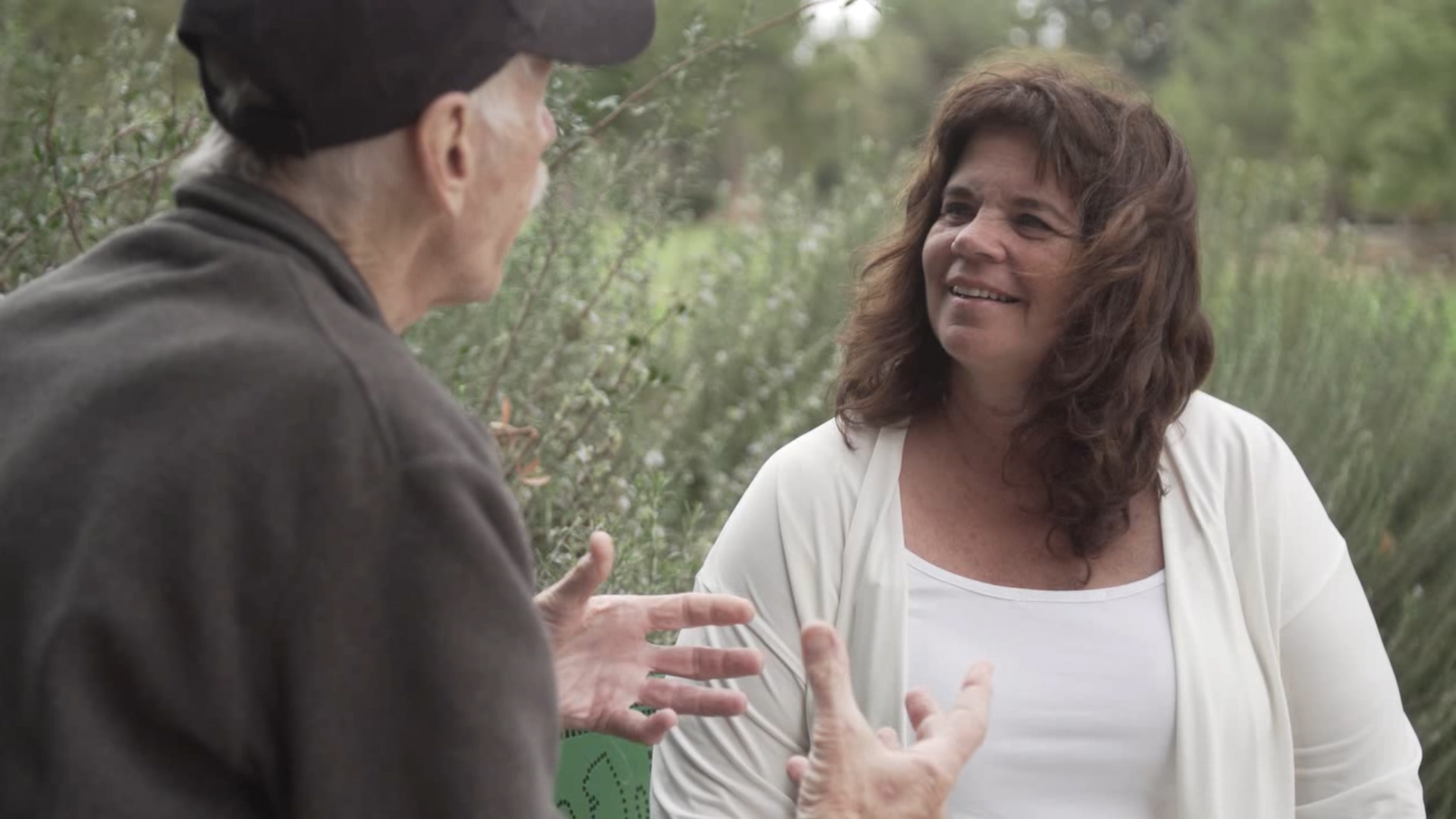
WWP had its start during the ‘Fifty Day’ Gaza war of 2014. The war created mass devastation in the densely populated Gaza Strip. Growing out of the extreme trauma and despair, forty Israeli and Palestinian women gathered at the Tantur Ecumenical Institute on the outskirts of Jerusalem and began to lay the groundwork for a new grassroots approach to peace through direct contact and reconciliation with one another. There on a hilltop surrounded by olive trees, overlooking the road to Bethlehem, shadowed by the massive security wall, this group of courageous women crafted a plan to challenge the spiraling conflict between their peoples.
In 2015, they held an ongoing rolling fast for fifty days in front of Prime Minister Netanyahu’s residence. They organized parlor meetings, marches and rallies. They created a massive quilt of peace jointly sewn by women throughout the world. In October 2016, they led the “March for Hope” which began in Northern Israel near the Lebanese border, with 19 Israeli and Palestinian women, and ended two weeks later with tens of thousands demonstrating at Prime Minister Netanyahu’s doorstep. They have continually sent delegates to the Knesset to monitor the politicians and hold them accountable for putting peace back at the top of the priorities.
Women’s movements, arising to stem the tide of Man’s penchant for war and patriarchal dominance, are nothing new. The Greek playwright Aristophanes wrote a critically acclaimed play, Lysistrata, dating to 411 BC, which depicts women withholding sex and occupying the Acropolis to stop the bloodshed and destruction of the Peloponnesian war between Athens and Sparta. Flash way forward to Liberia, 2003, where thousands of Muslim and Christian women from various sectors of society, led by Nobel Peace Prize winner Leymah Gbowee, wearing white and threatening to withhold sex, engaged in occupations and nonviolent actions to become a political force that ultimately brought down Liberia’s dictator, Charles Taylor, ending fourteen years of bloody civil war. Gbowee’s profound courage and success became the inspiration for WWP, and she traveled to Israel to support and participate in the “March for Hope.”
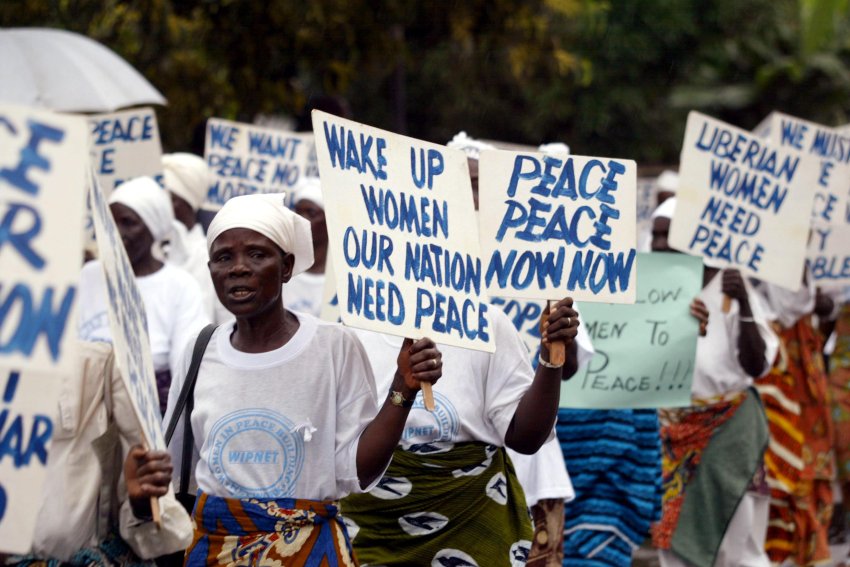
During the height of the North Ireland conflict in the 1970s, a women’s movement for peace, “The Peace People,” arose. The movement was opposed to all forms of violence and became a critical factor in achieving peace in the decades old conflict. Co-founders Mairead Maguire and Betty Williams were awarded the 1976 Nobel Peace Prize. Maguire has continued her peace activism and Interfaith work with “The Peace People” and this year praised the Nobel committee for awarding the 2017 award to the “International Campaign to Abolish Nuclear Weapons.”
Although both the Liberian and Irish women’s movements provided inspiration for WWP, the “Four Mothers” was an Israeli movement that gathered great public support for the withdrawal of Israeli forces from Lebanon. Started in 1997, after a horrific helicopter disaster killed 73 soldiers, following years of bloodletting in Lebanon, four women from Northern Israel, mothers of Israeli soldiers serving in Lebanon, organized protests calling for the unilateral and immediate withdrawal of Israeli forces occupying the “security zone” in Southern Lebanon since 1982. The movement was belittled as naïve and looked down upon as being led by idealistic women who failed to understand the depths of the security concerns at stake. Nevertheless, the movement persevered, catalyzed public debate, and gained support. On May 24, 2000, the Israeli Defense Forces (IDF) withdrew from Lebanon by the orders of Prime Minister Ehud Barak.
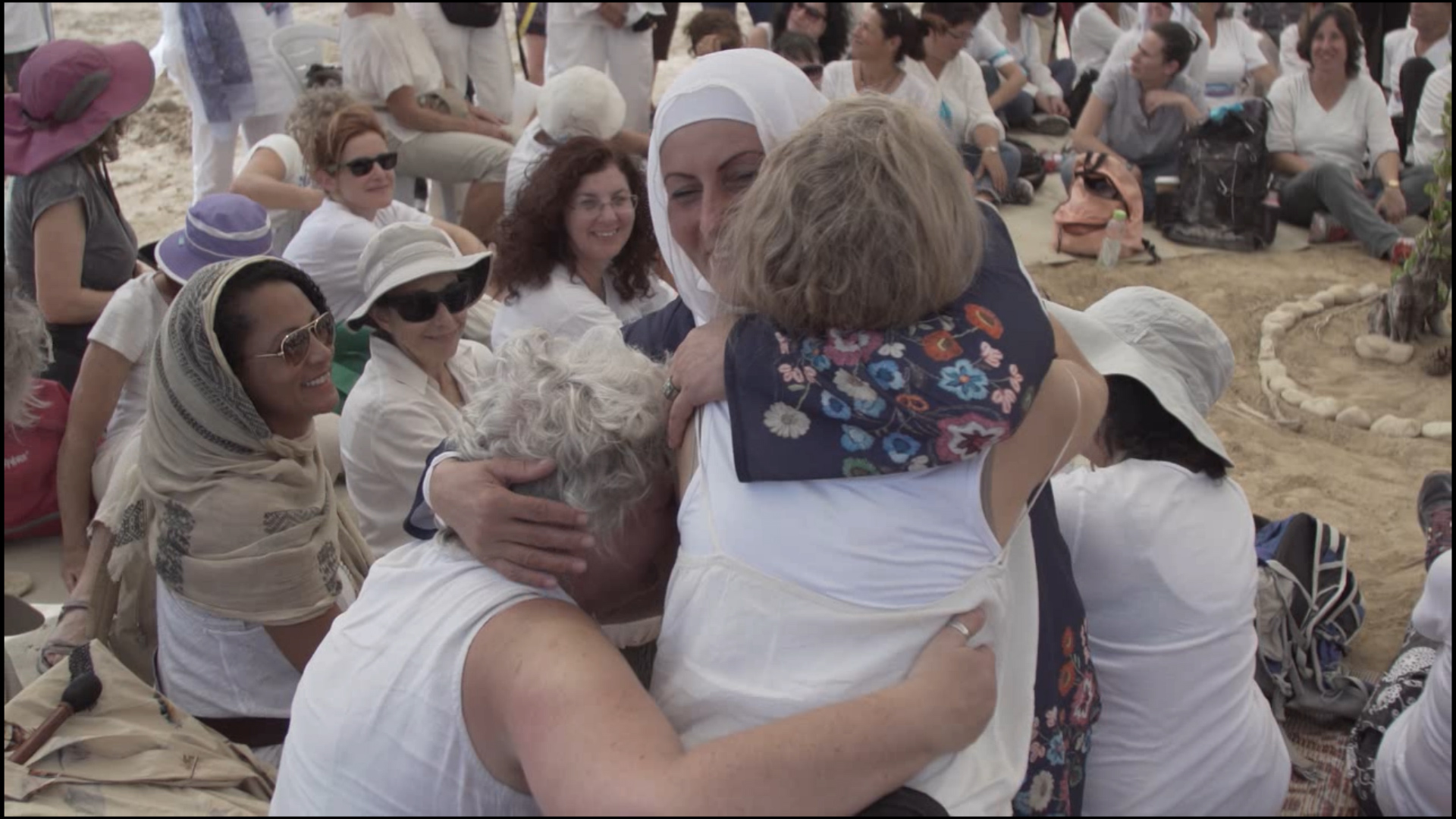
WWP’s success last year has inspired and catalyzed similar women’s movements in Spain, Germany, France, and Brazil. And, we can all remember the huge Washington DC, Inaugural Protest and Women’s March of January 21, 2017, signifying the rise of multicultural, multiracial, inclusive, revolutionary feminism on a mass scale, as marches were also held on that day in many other US cities and around the world.
Recently, in the United States, at the Standing Rock Sioux tribe protest against the $3.8 billion Dakota Access oil pipeline, Spokeswoman Ladonna Brave Bull Allard, who founded the first resistance camp and spoke at the UN, was one among the countless mothers, grandmothers, and daughters who risked their lives to stop the desecration of ancient burial and prayer sites and who embody the prophecy of the women as the guardians of the waters and protectors of all life. Pledged to remain on the land for the long run, the women of Standing Rock stood tall for the indigenous understanding of the sacredness of the air, land, and water, as one with the Earth Mother, as one with ourselves.
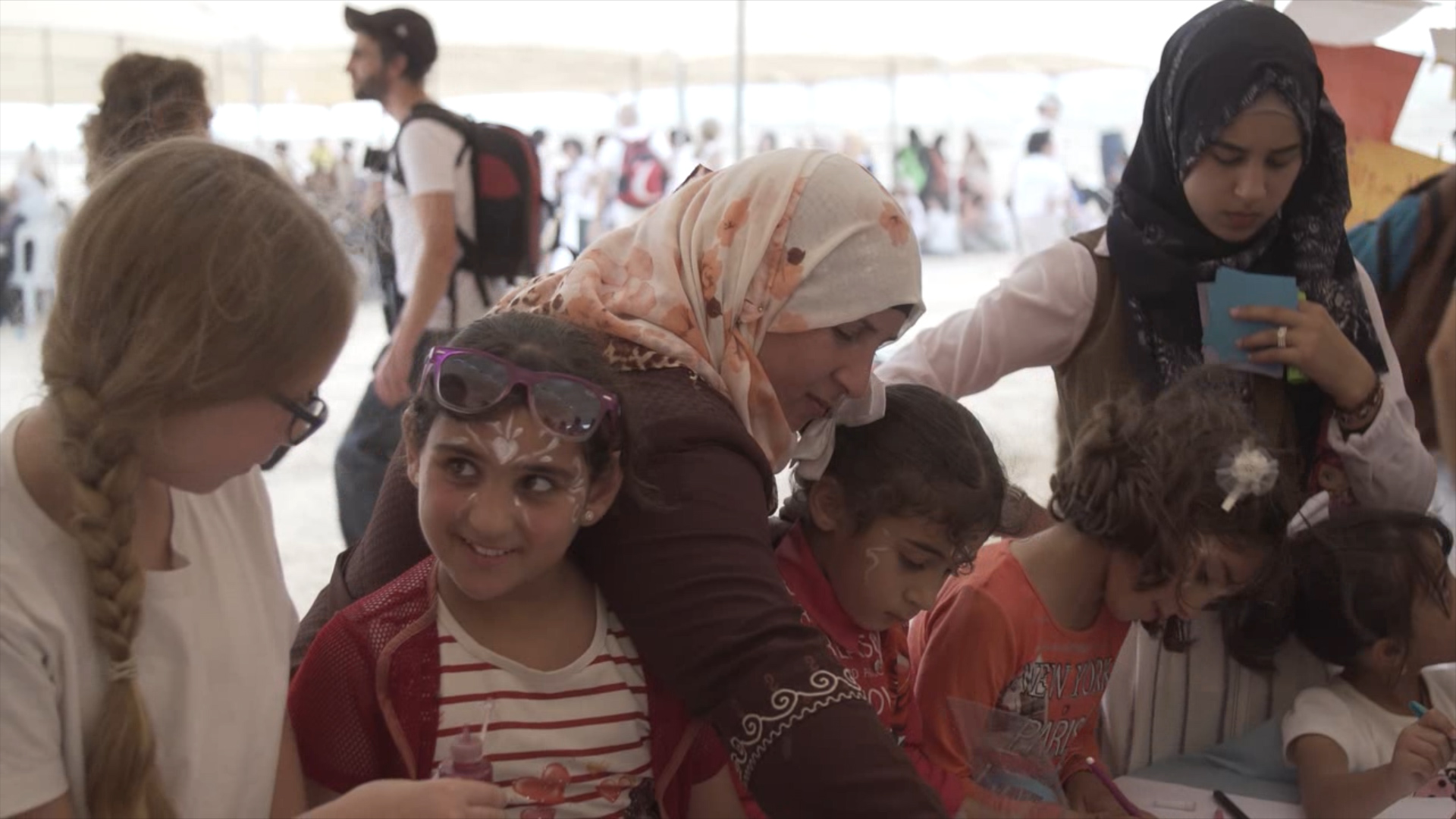
All these movements set precedence for WWP, which states its premise as follows:
Enough is enough. Before more blood is shed in the streets and before more mothers lose their beloved children… we will not be silent. We will be louder than the sounds of weapons and sirens… Violence will only bring more violence and suffering for all sides.
Enough is enough. We call upon the leaders of Israel and Palestine to sit down together and work towards a just peace.
Enough is enough. We, the women, will stand against any act of violence from any side. We will march to reclaim our lives. We will take to the streets to prevent this madness. We, the women, will fight for the security, wellbeing, and the future of our children. Enough is enough!
In the midst of this highly patriarchal, highly militarized and deeply troubled land, this movement merits our close attention and support, as these women are standing up with courage, dignity and strength, speaking truth to power. The women of WWP deserve our gratitude for taking the lead, risking their time, their commitment, their expertise, their wisdom, their love, all on a volunteer basis, while embodying dedication, professionalism and organizational skill, exemplifying true team work and peacemaking, and exercising their efforts on behalf of all of us. Certainly the hope that they are generating can well become our hope and enlist our engagement with them in the quest for peace in the Holy Land and our world.
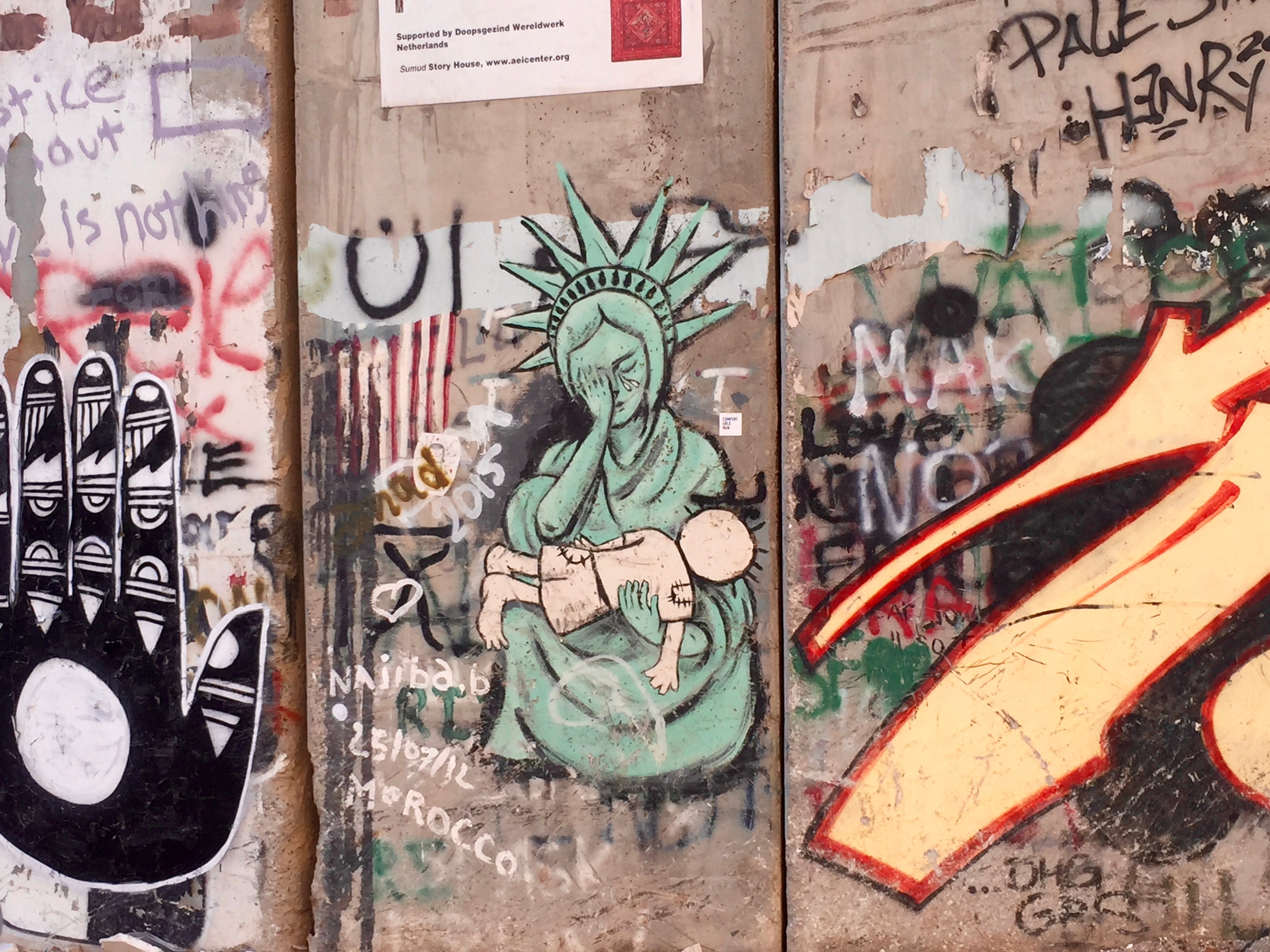
WATCH THIS SPACE FOR THE UPDATED WPP TRAILER, FEATURING FOOTAGE FROM JPP’S RECENT TRIP


